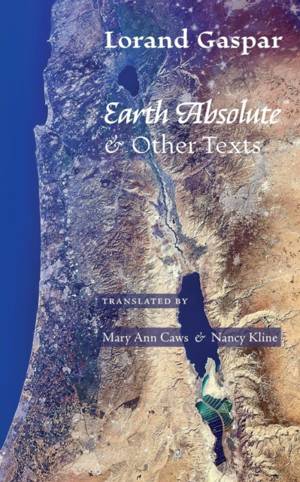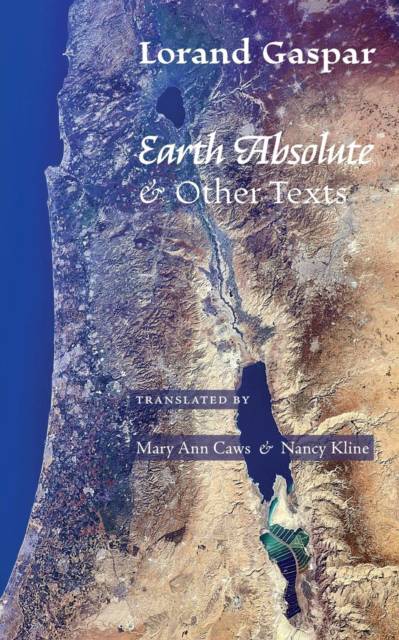
- Afhalen na 1 uur in een winkel met voorraad
- Gratis thuislevering in België vanaf € 30
- Ruim aanbod met 7 miljoen producten
- Afhalen na 1 uur in een winkel met voorraad
- Gratis thuislevering in België vanaf € 30
- Ruim aanbod met 7 miljoen producten
Zoeken
Omschrijving
Born in 1925 in Transylvania into a Hungarian family, Lorand Gaspar grew up speaking Hungarian, Romanian, German, and also French, which would become the language in which he wrote. Endowed with many gifts, all of which he grandly used, Gaspar is a surgeon, a poet, and a writer of scientific and lyric prose in addition to a translator of Spinoza, Rilke, Seferis and others. Sol absolu et autres textes, edited and translated by Mary Ann Caws and Nancy Kline, contains abundant evidence of Gaspar's gifts: an autobiographical essay, a reflection on scientific and medical matters, and poems from diverse periods and places. Earth Absolute, the book's central text, is Gaspar's long love poem to "the naked song of the Judean mountains," which, he tells us, revealed itself to his "thirst on the pathways of Rock-strewn Arabia, desolate and blessed." The breadth and scope of his poetics is evident in the text's diversity, too, a complex synthesis of science, ancient history, medicine, geology, religion, archeology, linguistics, botany and more. This erudition is spatialized through Gaspar's lineation, making the poems almost vibrate on the page, resonating with his sensitivity to the vibration of the lands of which he writes. Also included herein is Gaspar's Fourth State of Matter, which received the Prix Guillaume Apollinaire in 1967, and sections from Approach of the Word, the writer's reflection on poetics. Gaspar is the recipient of numerous honors including the Grand prix de poésie de la Ville de Paris (1987), the Prix Mallarmé (1993), the Grand prix national de Poésie (1995), and the Prix Goncourt de la poésie (1998). Translated for the first time into English along with brief commentaries by the editors and translators, Lorand Gaspar's Earth Absolute & Other Texts conveys the scientific and lyrical mind and expression of one of France's genuinely nomadic poets.
Specificaties
Betrokkenen
- Auteur(s):
- Vertaler(s):
- Uitgeverij:
Inhoud
- Aantal bladzijden:
- 272
- Taal:
- Engels
Eigenschappen
- Productcode (EAN):
- 9781940625126
- Verschijningsdatum:
- 31/07/2015
- Uitvoering:
- Paperback
- Formaat:
- Trade paperback (VS)
- Afmetingen:
- 127 mm x 203 mm
- Gewicht:
- 272 g

Alleen bij Standaard Boekhandel
+ 55 punten op je klantenkaart van Standaard Boekhandel
Beoordelingen
We publiceren alleen reviews die voldoen aan de voorwaarden voor reviews. Bekijk onze voorwaarden voor reviews.











